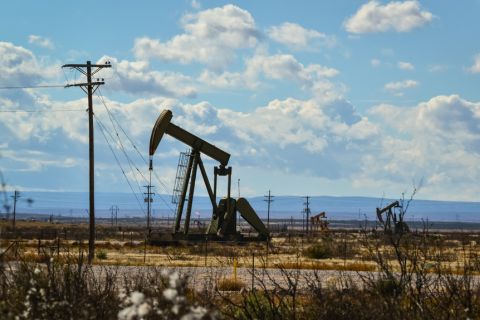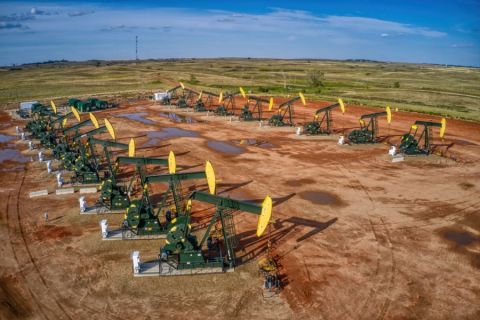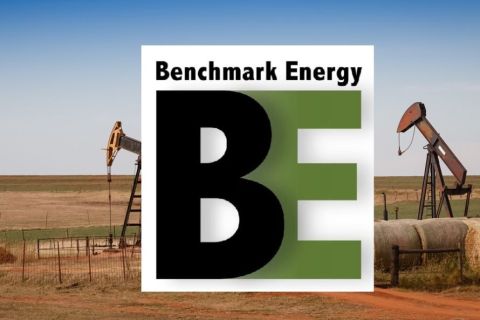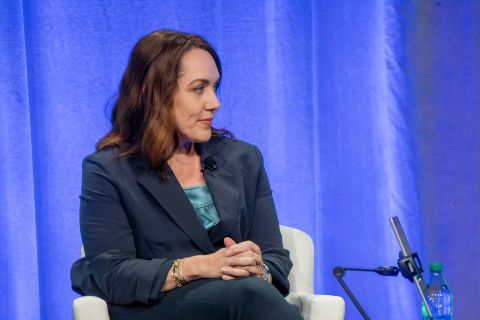Emerging upstream players have open to them today more doorways to private capital than at any time in recent memory, despite perennial investor fears about the sustainability of commodity prices and the exodus from the industry last year of some major mezzanine-funding sources. This isn't particularly surprising. Recently, private funds aimed at the oil and gas industry have witnessed far superior returns than those achieved in the public markets. In fact, while the Dow has skidded from the 10,000-plus level, these funds have experienced, on average, 25%-plus annual internal rates of return. One of these funds is Quantum Energy Partners. Since 1998, the Houston-based private-equity provider has raised $325 million-$100 million through its first fund; $225 million through its second-to help kick-start mainly private E&P companies throughout North America. And this year, the firm's energy-finance activity is surging. "If we close on all the deals we're working on right now, we'll have made eight new private-equity investments in 2003 totaling $160 million, versus two private-equity investments last year totaling $30 million," says S. Wil VanLoh Jr., a managing partner at Quantum. Should this occur, the company will have completed, since inception, 20 fundings of E&P and midstream companies-15 in the U.S. and five in Canada. More notably for North American producers, the fund manager expects by first-quarter 2004 to raise yet another $300 million for private-equity investments, aimed principally again at the upstream sector. "What we're looking for in our investments are management teams that can consistently make money across all points in an industry cycle," says VanLoh. "These are teams that know how to increase recoverable reserves through development or exploration drilling, reduce field operating costs and accelerate production rates, whether that involves refracing tight reservoirs or adding compression. That's how an operator and his investors systematically make money in this business-it's not done simply by buying properties low and selling them high." With this investment strategy, stretching over a three- to six-year horizon, Quantum is seeking-and has achieved for its investors-not only annualized internal rates of return substantially higher than 25%, but also an overall return on investment at least 2.5 times greater than the amount of equity put up. This may sound like expensive capital, but there's a growing number of U.S. and Canadian producer-management teams seeking it. "During the past two years, we saw in Canada more than 25 management teams of publicly traded E&P companies sell out and, rather than go public again, they're now raising private capital," says VanLoh. "That's because they don't want to spend half their time talking to equity analysts about their companies in order to make their stocks more attractive; they'd rather just focus on building their companies." In the U.S., Quantum has talked to several heads of publicly traded E&P companies who have frankly indicated that if they could take their companies private, they would. This is because of such regulatory developments as the Sarbanes-Oxley Act and the attendant increased level of reporting now being demanded of boards and senior management. (For more on this, see "Going Private," Oil and Gas Investor, August 2003.) This past June, Quantum closed a $25-million equity investment-its sweet spot-in Denali Oil & Gas Partners LP. The private Houston-based producer is headed by two former senior executives from El Paso who helped build its dominant position in the deep-gas Vicksburg Trend in South Texas. "When we closed this transaction-part of an overall $100-million equity/joint-venture financing for the operator-we saw high gas prices, moderate oilfield-service costs and a team that knows how to take advantage of this prolific gas trend," says VanLoh. "Now that team has the financial backing to drill enough wells to achieve success in the trend, where the average well costs $4- to $5 million to drill-a significant barrier to many other operators." More recently, Quantum closed a $12-million equity financing-part of an overall $40-million private-capital funding-for Northpoint Energy Ltd., a private Calgary-based operator focused on oil and gas drilling in northeast British Columbia and Alberta's Peace River Arch. Interestingly, the new producer's management team, headed by former Anderson Exploration president Larry Macdonald, was originally backed by Quantum in 2001 in the start-up of Pointwest Energy Inc., another private Calgary-based operator. "The $6.25 million in equity we initially provided Pointwest allowed that operator to begin growing its assets-through the drillbit-from zero to 4,000 barrels of oil equivalent per day of production," says VanLoh. "This September, concurrent with closing the Northpoint funding, we began the process of selling Pointwest, through which we expect to make multiples on our original investment." He adds, "We've had good commodity prices long enough now where the expectations of buyers and sellers of properties have coalesced; therefore, we should continue to see a pretty robust need for private capital." Jack S. Steinhauser, president of Denver-based Upstream Energy Capital, also envisions growing industry demand for private capital, particularly among small to midsize Rockies producers and service companies. The U.S. Geological Survey estimates the Rocky Mountain region has 293 trillion cubic feet (Tcf) of undiscovered gas reserves, 80% in the form of unconventional-type resources such as coalbed methane, Steinhauser says. "If one looks at Wyoming's Powder River Basin, only 14,000 coalbed-methane wells have been drilled to date, with cumulative production around a Tcf of gas. Estimates suggest, however, that as much as 25 Tcf of gas may be recoverable from that play, which would require the drilling of some 50,000 wells." He expects the activity, which carries relatively low geologic risk, is going to translate into an industry capital requirement of $10 billion. "And we see Upstream Energy intermediating between small producers and fund managers as much as 10% of that capital need-whether that's equity, mezzanine or senior-debt financing." The private-capital intermediary's first client is Wolverine Energy LLC, a private East Lansing, Michigan-based producer with a coalbed-methane project in Johnson and Sheridan counties, Wyoming. While Wolverine's Powder River Basin project is still at an early stage, the company has already invested, through independent fund-raising, $10 million in acquiring land, drilling 99 development wells and installing a gas-gathering infrastructure. "Since the company is in the process of dewatering the existing 12 wells it has online, all of its reserves are currently classified as possible," says Steinhauser. "We're seeking to raise $1.5- to $2 million of private equity to expand and accelerate that dewatering effort so gas production from 34 wells can be brought up to commercial levels while the reserves behind them get reclassified as proved developed producing (PDP)." Besides creating a core of PDP reserves, this step will also create a surrounding belt of proved undeveloped producing (PUD) reserves, he explains. "And it's against that base of PDP and PUD reserves that we'll then be able to secure for Wolverine [less expensive] mezzanine or senior-debt financing so that it can continue the aggressive development of its 307-well project, which could ultimately require as much as $54 million of financing." The Denver intermediary, which opened in May, is applying the same capital-raising strategy to help Pioneer Oil LLC, a private Rockies operator based in Billings, Montana, and Sheridan, Wyoming. That producer has already invested $5 million to put together a 15,000-acre leasehold in the Powder River Basin, drill five coalbed-methane wells and develop infrastructure. "We're now looking to access $5- to $10 million of private equity to enable Pioneer to grow its PDP reserve base, then we'll leverage that base to seek debt capitalization for full field development, probably mezzanine financing," says Jonas Olmsted, Upstream Energy vice president of business development. The firm is also helping Gillette, Wyoming-based Conquest Drilling Co., one of the leading private drillers in the Powder River Basin, raise bank debt-the least expensive form of capital-to enlarge its current five-rig fleet and make investments in the coalbed-methane projects it drills, on a case-by-case basis. "It's preferable to have long-term [working-interest] sources of residual income versus just getting paid fees for drilling," says Chris Mendrop, Upstream Energy vice president of investment banking. Adds Steinhauser, "There are more private capital sources available today than in recent years. Our job is to sort through all those sources and bring to bear the right form of capital at the right time in the life of a company."
Recommended Reading
Novo II Reloads, Aims for Delaware Deals After $1.5B Exit Last Year
2024-04-24 - After Novo I sold its Delaware Basin position for $1.5 billion last year, Novo Oil & Gas II is reloading with EnCap backing and aiming for more Delaware deals.
Enverus: 1Q Upstream Deals Hit $51B, but Consolidation is Slowing
2024-04-23 - Oil and gas dealmaking continued at a high clip in the first quarter, especially in the Permian Basin. But a thinning list of potential takeout targets, and an invigorated Federal Trade Commission, are chilling the red-hot M&A market.
EIA: Permian, Bakken Associated Gas Growth Pressures NatGas Producers
2024-04-18 - Near-record associated gas volumes from U.S. oil basins continue to put pressure on dry gas producers, which are curtailing output and cutting rigs.
Benchmark Closes Anadarko Deal, Hunts for More M&A
2024-04-17 - Benchmark Energy II closed a $145 million acquisition of western Anadarko Basin assets—and the company is hunting for more low-decline, mature assets to acquire.
‘Monster’ Gas: Aethon’s 16,000-foot Dive in Haynesville West
2024-04-09 - Aethon Energy’s COO described challenges in the far western Haynesville stepout, while other operators opened their books on the latest in the legacy Haynesville at Hart Energy’s DUG GAS+ Conference and Expo in Shreveport, Louisiana.





